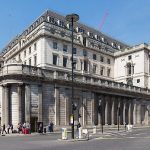St Paul’s – for the 1% or the 99%?
I’m not an unalloyed fan of the man who gave his name to St Paul’s Cathedral. Saul of Tarsus was an uncomfortable and divisive figure in early Christianity. Many of his pronouncements, which reflect his conservative rabbinical background, leave many of us equally uncomfortable today.
Paul had issues with women, gays and men with long hair. If he’d found himself caught up in the Occupy crowd beside the great London church that bears his name he’d probably chew their ears off.
However that’s as nothing to the roasting he’d have in store for the denizens of the City; the men and women of the City of London Corporation, the trustees of St Pauls and the tens of thousands of highly paid men and women whose relentless pursuit of money strains at the leash of legality and, despite protestations to the contrary, whose employers are not permitted by law to pay heed to the constraints of morality if it curtails their profits.
Arguably Paul’s great contribution to Christian theology was his discourse of righteousness. In framing his argument Paul pulled together many of the radical threads of Jesus teaching.
It’s best summed up in Matthew 22 36-40 “‘Love the Lord your God with all your heart and with all your soul and with all your mind.’ 38 This is the first and greatest commandment. 39 And the second is like it: ‘Love your neighbour as yourself.’ 40 All the Law and the Prophets hang on these two commandments.”
One of the reasons Paul readily seized on this is that it was already well established in Jewish theology. Paul had studied under Gamaliel, the grandson on Hillel the Elder who had framed the commandment thus: “What is hateful to thee, do not unto thy fellow man: this is the whole Law; the rest is mere commentary” (Shabbat 31a).
But Paul developed the theme. The aim of the righteous was to maintain a right relationship with God and with one’s fellow people. Anything that acted as an obstacle to this relationship was an obstacle to salvation.
So though he’s often misquoted as saying that ‘money is the root of all evil’ what Paul actually says is that ‘the love of money is the root of all kinds of evil.’ When the love of money supersedes the love of one’s fellow man it is morally and spiritually corrupting because that love of money prevents one from doing the right thing.
It’s in this light that we should read the parable of the Good Samaritan or the remark about it being easier for a camel to pass through the eye of a needle than for a rich man to enter the kingdom of heaven.
And so back to St. Paul’s in London. It has ‘sadly’ announced that it will be closing due to health and safety concerns arising from the #OccupyLSX protest. It smacks of moral blackmail.
The Dean of St Paul’s, Graeme Knowles, explained that it was “simply not possible to fulfil our day to day obligations to worshippers, visitors and pilgrims in current circumstances”. The implicit message is clear – these dreadful protesters are preventing good people from worshipping.
Aside from the fact that the credibility of this assertion is in doubt, as the Rt. Revd. Knowles would be the first to point out, God is everywhere, not least in the dozens of underused churches that dot the city of London, within a few hundred yards of St Pauls. Indeed given how few people actually live in the Square Mile, the City of London probably has more churches per head of population than anywhere else on earth.
The Rt. Revd. Knowles should remember that St Paul’s is not just a place of worship, it is a symbol. It was a symbol of London’s resilience and defiance during the Blitz. He and his fellow Canons need to decide whether during the worst economic crisis in 80 years it’s a symbol of the 99% or of the 1%, of the poor, the needy and the dispossessed or of the city’s rich men and women stuck trying to squeeze through their own eyes of needles.
You can see the cathedral’s dilemma. As its website reads ‘We are extremely proud of the close partnerships we have forged and continue to nurture with our corporate neighbours.’ Those corporate neighbours give millions of pounds a year to the cathedral and they want the protestors to go.
The City of London Corporation has called on the protesters to leave. Well there’s a surprise – it’s the corporate interests that the CLC represents, and that enjoy such close links with St Paul’s, that the protesters are there to protest about. It’s like Margaret Thatcher telling the striking miners ‘move along now, you’ve had your fun’. Preposterous.
In truth it shouldn’t be a difficult choice. All the Canons need to do is to listen to their hearts and consider the words of the man whose name their cathedral bears, and then they’d surely have no trouble in making the right – indeed the righteous decision.
This post first appeared on Jonathan’s blog


Leave a Reply